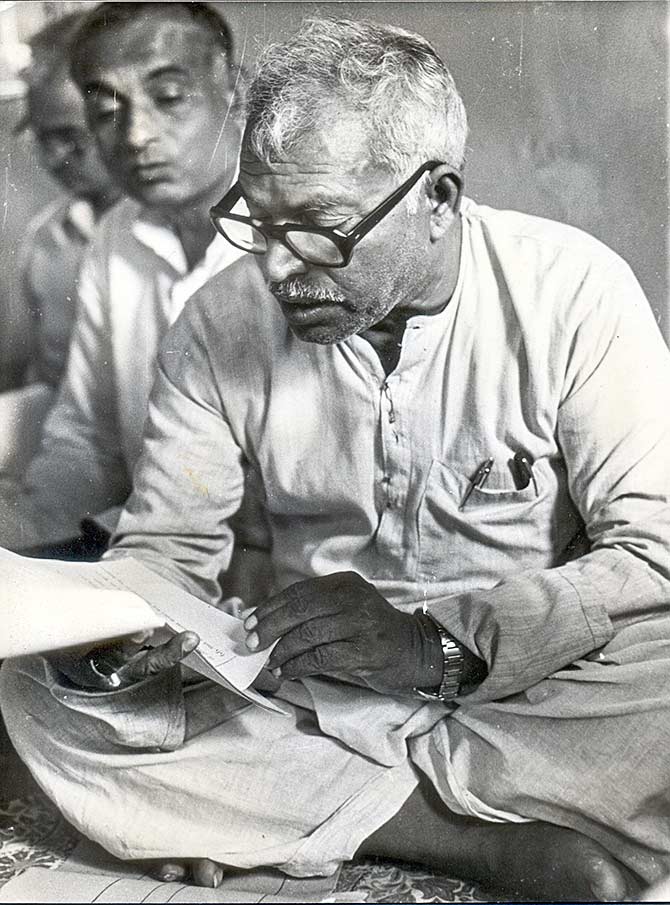From UPSC perspective, the following things are important :
Prelims level: Bharat Ratna award
Mains level: Karpoori Thakur, a backward-caste leader

Central Idea:
The article examines the political significance of the Bharat Ratna awarded to the late Karpoori Thakur, a legendary backward-caste leader, and its implications in the context of the BJP’s Hindutva agenda and the upcoming Lok Sabha elections. The author questions whether the Hindutva agenda can successfully co-opt the social justice agenda, particularly by winning the support of lower-caste Hindus. The juxtaposition of events like the temple inauguration at Ayodhya and the Bharat Ratna announcement raises the critical question of whether a homogenized Hindu identity can overcome the deep-rooted hierarchical divisions within Hindu society.
Key Highlights:
- The timing of the Bharat Ratna announcement for Karpoori Thakur, a backward-caste leader, and the Ayodhya temple inauguration raises questions about the BJP’s strategy leading up to the Lok Sabha elections.
- The article explores the challenge of reconciling the Hindutva agenda with the social justice agenda, particularly in gaining support from lower-caste Hindus.
- The BJP’s dependence on state power for the success of the Hindutva agenda is discussed, emphasizing the significance of electoral majorities in achieving political goals.
- The author highlights the complexities of caste dynamics, including internal distinctions, rivalries, and the need for credible rhetoric of implicit equality in electoral politics.
Key Challenges:
- The challenge of reconciling the Hindutva agenda with the hierarchical divisions and inequalities within the Hindu caste system.
- The difficulty in securing electoral majorities without support from lower-caste Hindus.
- The tension between electoral politics requiring equality rhetoric and the caste system perpetuating explicit inequalities.
Key Terms:
- Hindutva
- Lok Sabha elections
- Bharat Ratna
- Ayodhya
- Caste dynamics
- Electoral majorities
Key Phrases:
- “Homogenized Hindu identity”
- “Hierarchical divisions within Hindu society”
- “Caste dynamics in electoral politics”
- “Credible rhetoric of implicit equality”
Key Quotes:
- “Will the almost-successful Hindutva agenda seal its victory by co-opting and engulfing the social justice agenda?”
- “The juxtaposition of these two events invites attention to the central question facing our polity today.”
- “The only tried and trusted constituency for Hindutva are the Hindu ‘upper’ castes.”
Key Statements:
- “Elections remain the only durable and legitimate route to state power.”
- “The Bharat Ratna to Thakur is a shrewd move because it is costless and yet offers multiple gains.”
- “The BJP is trying to recruit other castes or caste-clusters to an essentially upper-caste political programme.”
Key Examples and References:
- Reference to the Bharat Ratna announcement for Karpoori Thakur and the Ayodhya temple inauguration.
- Comparison of Thakur’s political agenda in the 1970s with the BJP’s current agenda.
Critical Analysis:
- The article critically analyzes the BJP’s strategy, questioning its alignment with Thakur’s legacy and highlighting the disparities between Thakur’s popular-leftist caste agenda and the BJP’s rightist communal agenda.
- The complexities of caste dynamics and electoral alliances are discussed, emphasizing the challenges in gaining support from different caste segments.
- The contrast between Thakur’s policies, such as the sub-division of the backward caste quota, and the BJP’s current approach is examined.
Way Forward:
- The article suggests that the BJP’s attempts to co-opt lower-caste Hindus need to align with a genuine social justice agenda, acknowledging the complexities of caste dynamics.
- There is an implicit call for a balanced approach that addresses the historical inequalities within the Hindu caste system while navigating the intricacies of electoral politics.
This comprehensive analysis provides insights into the complex intersection of Hindutva, social justice, and electoral dynamics, emphasizing the need for a nuanced and inclusive approach in Indian politics.
Get an IAS/IPS ranker as your 1: 1 personal mentor for UPSC 2024
